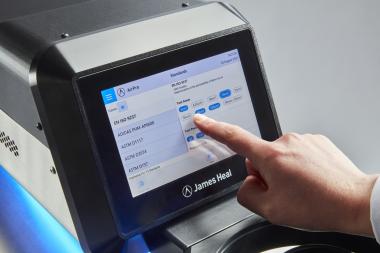Neues Prüfverfahren für textiles Mikroplastik
- Standard unterscheidet nach Faserfreisetzung, Biodegradation und Ökotoxizität
Der Prüfdienstleister Hohenstein hat in Zusammenarbeit mit den Projektpartnern Trigema, Freudenberg, DBL ITEX und Paradies eine neue DIN SPEC 4872 geschaffen, die künftig als standardisiertes Prüfverfahren Umweltauswirkungen von Textilien beim Waschen bezüglich Faserfreisetzung, biologischer Abbaubarkeit sowie Ökotoxizität detektiert und klassifiziert.
Studien haben gezeigt, dass beim Waschen von Textilien Fasern in der Größenordnung von Mikroplastik im Waschwasser freigesetzt werden, die von Kläranlagen nur unzureichend zurückgehalten werden können. Dabei stellen synthetische Fasern aufgrund ihrer Langlebigkeit das größte Risiko für die Umwelt dar, denn sie sind biologisch nicht abbaubar. Hohenstein Gesamtprojektleiterin Juliane Alberts gibt jedoch für biologisch abbaubare Fasern wie z. B. Naturfasern keine Entwarnung: „Die biologische Abbaubarkeit alleine bedeutet jedoch nicht, dass beispielsweise reine Naturfasern für die Umwelt völlig unschädlich sind. Auch sie verbleiben eine gewisse Zeit in der Umwelt, bis sie vollständig abgebaut sind und können sich daher ebenfalls negativ auswirken. Darüber hinaus können in der Textilproduktion verwendete Zusatzstoffe, Hilfsmittel oder Ausrüstungen den Abbauprozess weiter verlangsamen und sich als umweltschädlich erweisen.“
Der neue Standard ermöglicht es Produzenten und Anbietern von Textilien erstmals, ihre Produkte hinsichtlich der Faserfreisetzung beim Waschen und deren Umweltauswirkungen von Hohenstein testen, bewerten und vergleichen zu lassen. Juliane Alberts sieht in der systematischen Bewertung des textilen Austrags beim Waschen eine Chance für die Textilindustrie, die Initiative beim drängenden Problem von Mikroplastik zu ergreifen: „Unsere belastbaren Daten können bestens als Basis für eine gezieltere Produktentwicklung und eine generelle Optimierung des Produktportfolios herangezogen werden. Auf diese Weise kann es gelingen, die weitere Umweltbelastung aktiv und bewusst zu steuern bzw. zu vermeiden.“
Textilinstitut Hohenstein Hohenstein, Textilien, Messdaten Mikroplastik DIN SPEC 4872
Hohenstein







